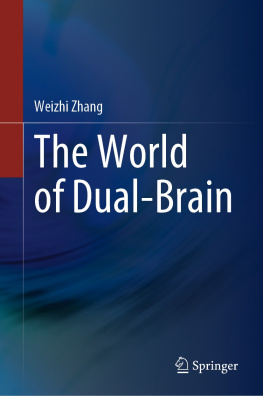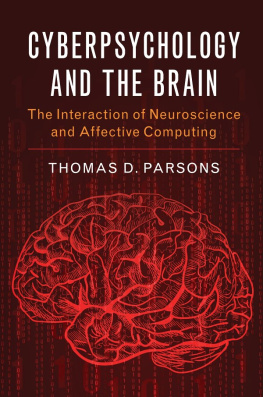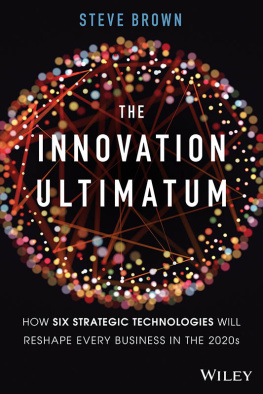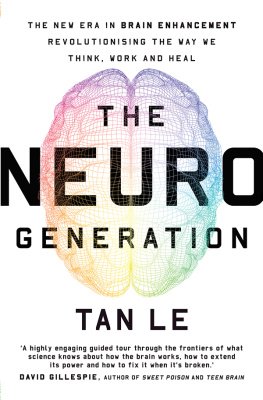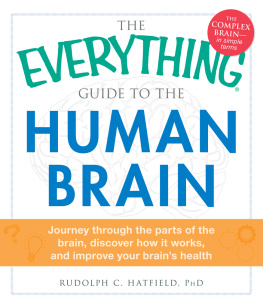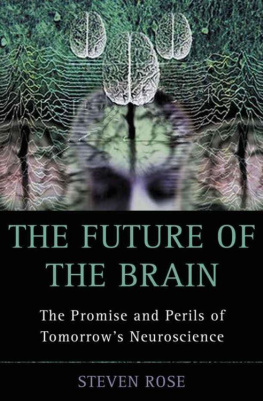
Breakpoint
Previous Publications
Wired for Thought: How the Brain Is Shaping the Future of the Internet (2009)
Breakpoint
Why the Web Will Implode,
Search Will Be Obsolete,
and Everything Else You Need to
Know about Technology Is in Your Brain
Jeff Stibel


BREAKPOINT
Copyright Jeff Stibel, 2013.
All rights reserved.
First published in 2013 by PALGRAVE MACMILLAN in the United Statesa division of St. Martins Press LLC, 175 Fifth Avenue, New York, NY 10010.
Where this book is distributed in the UK, Europe and the rest of the world, this is by Palgrave Macmillan, a division of Macmillan Publishers Limited, registered in England, company number 785998, of Houndmills, Basingstoke, Hampshire RG21 6XS.
Palgrave Macmillan is the global academic imprint of the above companies and has companies and representatives throughout the world.
Palgrave and Macmillan are registered trademarks in the United States, the United Kingdom, Europe and other countries.
Photo compilation on page vii by Mike Samuelsen. Image credits:
iStockphoto.com/Mikael Rinnan; iStockphoto.com/vasabii;
iStockphoto.com/77studio.
Photo credit for the images on pages 16, 17, 21, 57, 105, 141, and 188: iStockphoto.com/petekarici.
ISBN: 978-1-137-27878-4
Library of Congress Cataloging-in-Publication Data
Stibel, Jeff.
Breakpoint : why the web will implode, search will be obsolete, and everything else you need to know about technology is in your brain /
Jeff Stibel.
pages cm
ISBN 978-1-137-27878-4 (hardback)
1. InternetSocial aspects. 2. Online social networks. 3. Brain. I. Title.
HM851.S748 2013
302.231dc23
2013016797
A catalogue record of the book is available from the British Library.
Design by Letra Libre Inc.
First edition: July 2013
10 9 8 7 6 5 4 3 2 1
Printed in the United States of America.
To Lincoln, Dennett, and Cheryl
Contents

List of Images
Image 2.3: When Networks Collapse: MySpace and
St. Matthew Island Reindeer
One
Introduction | Reindeer | Networks
I n 1944, the United States Coast Guard brought 29 reindeer to St. Matthew Island, located in the Bering Sea just off the coast of Alaska. Reindeer love eating lichen, and the island was covered with it, so the reindeer gorged, grew large, and reproduced exponentially. By 1963, there were over 6,000 reindeer on the island, most of them fatter than those living in natural reindeer habitats.
There were no human inhabitants on St. Matthew Island, but in May 1965 the United States Navy sent an airplane over the island, hoping to photograph the reindeer. There were no reindeer to be found, and the flight crew attributed this to the fact that the pilot didnt want to fly very low because of the mountainous landscape. What they didnt realize was that all of the reindeer, save 42 of them, had died. Instead of lichen, the ground was covered with reindeer skeletons.
The network of St. Matthew Island reindeer had collapsed: the result of a population that grew too large and consumed too much. The reindeer crossed a pivotal point, a breakpoint, when they began consuming more lichen than nature could replenish. Lacking any awareness of what was happening to them, they continued to reproduce and consume. The reindeer destroyed their environment and, with it, their ability to survive. Within a few short years, the remaining 42 reindeer were dead. Their collapse was so extreme that for these reindeer there was no recovery.
I
Reindeer do not typically fare this poorly in the wild. In North America, reindeer are migratory, so when they run out of lichen, they simply move on to new locations. This migration allows the lichen in the area to be replenished before the reindeer return. Of course, on an island, migration is not an option.
Nature rarely allows the environment to be pushed so far that it collapses. Ecosystems generally keep life balanced. Plants create enough oxygen for animals to survive, and the animals, in turn, produce carbon dioxide for the plants. In biological terms, ecosystems create homeostasis. But take something biological outside of its normal environment and chaos can ensue. This is the reason we cant bring fruits and vegetables on airplanes, why pets must be sequestered for months before being brought into a new country, and why reindeer shouldnt be placed on remote islands.
Most animals are genetically programmed to reproduce and to consume whatever food is available. This is the case for humans as well. Back when our ancestors started climbing down from the trees, this was a good thing: food was scarce so if we found some, the right thing to do was gorge. As we ate more, our brains were able to grow, becoming larger than those of any other primates. This was a very good thing. But brains consume disproportionately large amounts of energy and, as a result, can only grow so big relative to body size. After that point, increased calories are actually harmful. This presents a problem for humanity, sitting at the top of the food pyramid. How do we know when to stop eating? The answer, of course, is that we dont. People in developed nations are growing alarmingly obese, morbidly so. Yet we continue to create better food sources, better ways to consume more calories with less bite.
Mother Nature wont help us because this is not an evolutionary issue: most of the problems that result from eating too much happen after we reproduce, at which point we are no longer evolutionarily important. We are on our own with this problem. But that is where our big brains come in. Unlike reindeer, we have enough brainpower to understand the problem, identify the breakpoint, and prevent a collapse.
II
It is not just the physical stuff of life that has limits. The things we cant see or feel, those things that seem infinite, are indeed bounded. Take knowledge, for example. Our minds can only digest so much. Sure, knowledge is a good thing. But there is a point at which even knowledge is bad. Psychologists call this information overload, and it has become an increasing problem in the information age. Even the sturdiest shelf crumbles under the weight of too many books.
We have been conditioned to believe that bigger is better and this is true across virtually every domain. When we try to build artificial intelligence, we start by shoveling as much information into a computer as possible. Then we stare dumbfounded when the machine cant figure out how to tie its own shoes. When we dont get the results we want, we just add more data. Who doesnt believe that the smartest person is the one with the biggest memory and the most degrees, that the strongest person has the largest muscles, that the most creative person has the most ideas? Then we hear about the humble German patent clerks, the Einsteins of the world. We call them virtuosos, outliers perhaps, but what they really are is balancedunique individuals with the right amount of physical and mental abilities.
Growth is a core tenet of success. But we often destroy our greatest innovations by the constant pursuit of growth. An idea emerges, takes hold, crosses the chasm, hits a tipping point, and then starts a meteoric rise with seemingly limitless potential. But more often than not, it implodes, destroying itself in the process. Ideas are consumed just like lichen.
Next page

